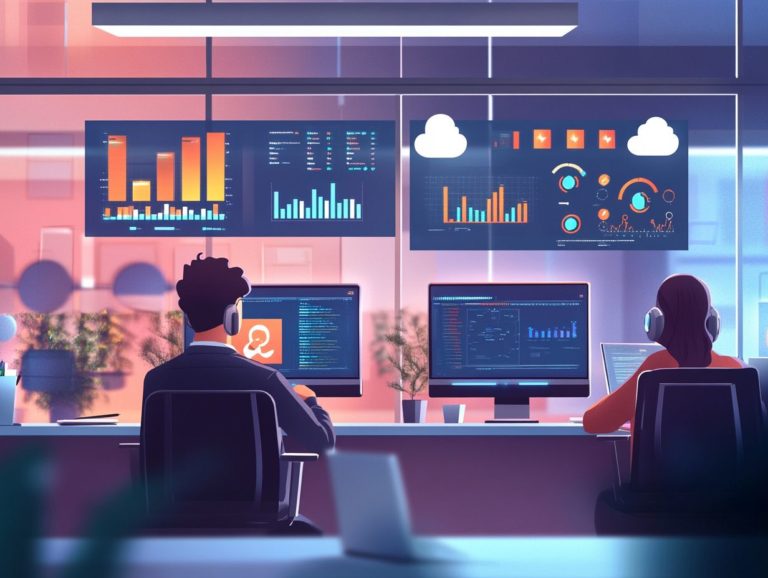Understanding Data Privacy in SaaS Applications
In today s digital landscape, data privacy is a cornerstone of trust between SaaS providers and their users. As you rely more on cloud-based solutions, understanding the nuances of data privacy is essential for compliance and safeguarding sensitive information.
This article explores the significance of data privacy, highlights key regulations like GDPR (General Data Protection Regulation) and CCPA (California Consumer Privacy Act), and presents practical strategies for both providers and users.
Together, you ll navigate the critical components and future trends shaping data privacy in the SaaS realm.
Contents
- Key Takeaways:
- The Importance of Data Privacy in SaaS Applications
- Understanding Data Privacy Regulations
- Key Components of Data Privacy in SaaS
- Ensuring Data Privacy in SaaS Applications
- The Future of Data Privacy in SaaS
- Preguntas Frecuentes
- Qu es SaaS y por qu es importante la privacidad de los datos en este contexto?
- Existen leyes o regulaciones espec ficas para la privacidad de los datos en las aplicaciones SaaS?
- Cu les son algunos riesgos comunes de privacidad de los datos asociados con las aplicaciones SaaS?
- Qu medidas se pueden tomar para garantizar la privacidad de los datos en las aplicaciones SaaS?
- Qu papel juegan los usuarios en el mantenimiento de la privacidad de los datos en las aplicaciones SaaS?
- C mo pueden las empresas garantizar el cumplimiento de las regulaciones de privacidad de datos en las aplicaciones SaaS?
Key Takeaways:
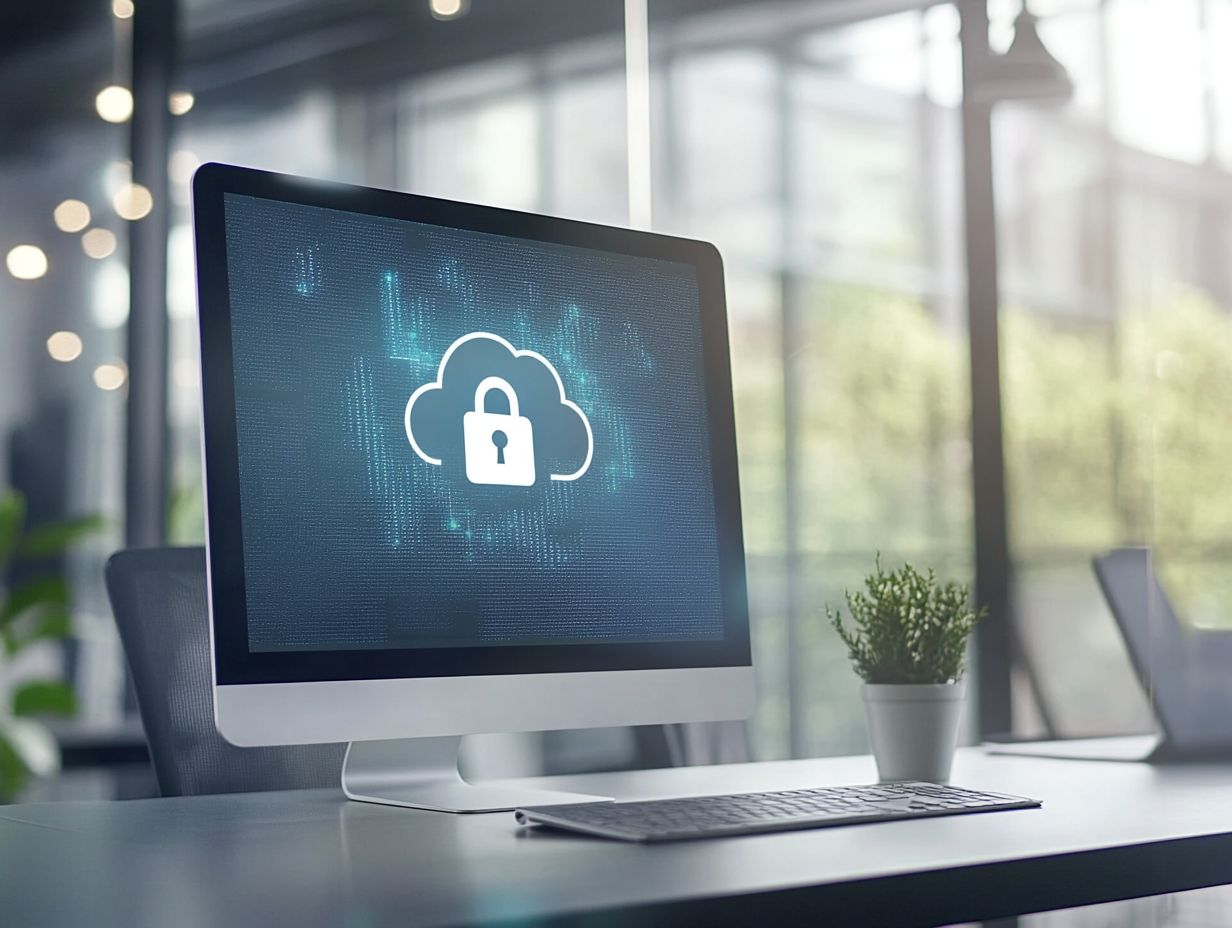
Data privacy is crucial for both SaaS users and providers to protect sensitive information and maintain trust.
Understanding data privacy regulations such as GDPR and CCPA is essential for compliance and avoiding penalties.
SaaS providers can ensure data privacy by implementing policies, obtaining user consent, and following best practices, while users should take measures to protect their data.
The Importance of Data Privacy in SaaS Applications
Data privacy in SaaS applications goes beyond just following rules; it is fundamental to the trust between providers and users. Industry giants set the benchmark in cloud computing. Your commitment to data protection is now critical in a landscape filled with cyber threats.
You must implement compliance measures with regulations such as GDPR, PIPL, and industry standards like ISO/IEC 27001 and SOC 2 to effectively safeguard user data.
You should also use techniques such as:
- Data encryption
- Robust identity management
- Access control
- Comprehensive security auditing
These practices are essential for upholding security standards. This shared responsibility is vital for both you, as a SaaS user, and the providers you engage with.
Why Data Privacy is Critical for SaaS Users and Providers
Data privacy should be at the forefront of your mind as both a SaaS user and provider, especially with the rising threats of data breaches and evolving regulatory compliance demands. In today s world, protecting your sensitive information is urgent.
Users constantly face risks such as identity theft and financial fraud, making vigilance essential. For providers, the stakes are high; neglecting compliance can lead to hefty fines and significant reputational harm.
By implementing robust security practices such as encryption and regular audits you not only protect user data but also cultivate trust and loyalty. These strategies are vital for maintaining a healthy relationship between users and providers, ensuring that both sides can thrive in a secure and compliant environment.
Understanding Data Privacy Regulations
Understanding data privacy regulations is crucial for your organization, particularly if you’re in the SaaS sector. Non-compliance can lead to significant penalties and a profound erosion of customer trust.
Key regulations such as GDPR, CCPA, and PIPL impose strict standards on how you collect, store, and process data, urging you to adopt comprehensive compliance measures.
These regulations not only safeguard user data but also clearly outline the rights individuals hold concerning their personal information.
Overview of GDPR, CCPA, and Other Regulations
The General Data Protection Regulation (GDPR), California Consumer Privacy Act (CCPA), and Personal Information Protection Law (PIPL) are crucial regulations that are significantly shaping the data privacy landscape.
These regulations provide essential frameworks that govern how you collect, process, and store personal data as a SaaS provider, all with the intent of enhancing user consent and transparency.
For instance, GDPR places a strong emphasis on the rights of individuals to access and port their data, compelling you to offer clear pathways for users to manage their own information. The CCPA, in contrast, gives California residents power over their personal data. It grants them rights to know what data is being collected and the ability to opt-out of data sales.
Similarly, PIPL underscores the importance of data minimization and lawful processing, impacting both local and international businesses.
To navigate these complex regulations, compliance often requires you as a SaaS provider to implement robust security measures, such as those outlined by ISO/IEC 27001. This ensures that your information security management systems are not only compliant but also effective in safeguarding personal data against breaches and misuse.
Key Components of Data Privacy in SaaS
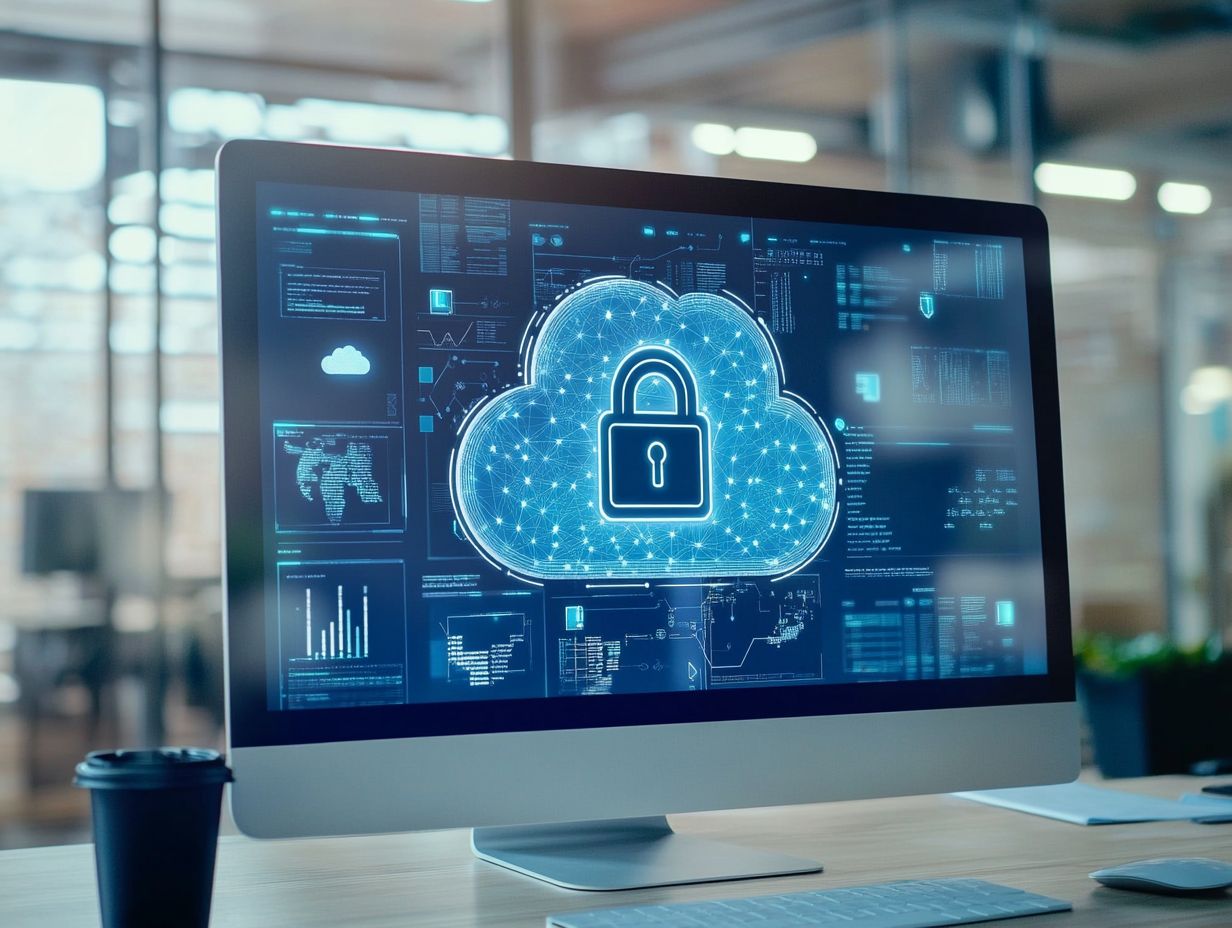
Key components of data privacy in SaaS encompass data collection and storage policies, user consent and control, as well as robust security measures aimed at safeguarding sensitive information. It s essential for you, whether a user wanting to protect your data or a provider dedicated to meeting industry standards, to grasp these elements fully.
Effective data protection means implementing comprehensive data encryption, establishing clear identity management protocols, enforcing strict access control measures, and conducting regular security audits to pinpoint vulnerabilities.
Your commitment to these practices not only enhances security but also builds trust in the digital landscape.
Data Collection and Storage Policies
Robust data collection and storage policies serve as the foundation of data privacy, ensuring that your sensitive information is managed with the utmost responsibility and security.
In today’s digital landscape, the importance of these policies goes well beyond simple compliance; they are essential for cultivating trust and preserving the integrity of your operations.
By implementing best practices such as data minimization and encryption, you can significantly reduce vulnerabilities and protect against unauthorized access.
It s crucial to stay informed about regulatory frameworks like GDPR and CCPA, which outline how data should be collected, stored, and ultimately disposed of.
By adhering to these guidelines and regularly reviewing your practices, you not only mitigate risks but also foster a culture of accountability and respect for user privacy within your organization.
User Consent and Control
User consent and control are vital for your data privacy, enabling you to make informed choices about your personal information. These principles empower you to grasp how your data is gathered, processed, and utilized by various applications, especially by Software as a Service (SaaS) providers.
By aligning with regulations like GDPR and CCPA, these providers can create transparent frameworks that prioritize your autonomy. This means you should have clear options to agree or disagree with data sharing.
With robust data management practices, you have the power to review and delete your personal information, ensuring you maintain complete control over your digital footprint.
Ultimately, cultivating an environment of trust and accountability is essential for any organization that aims to engage with you responsibly. By understanding your rights, you can take charge of your personal data.
Ensuring Data Privacy in SaaS Applications
Ensuring data privacy in your SaaS applications demands a complete plan that does more than just follow rules. Act now! You need proactive security measures that fit your specific needs.
As a user, it s vital to understand that SaaS providers must embrace a shared responsibility model. This involves implementing robust security auditing, conducting thorough vulnerability assessments, and maintaining continuous monitoring to protect your data.
This collaborative effort between you and the provider is crucial for safeguarding your information and preserving trust in the realm of cloud security.
Best Practices for SaaS Providers
Implement strong data encryption and comply with regulations. Conduct security audits regularly.
Use multifactor authentication and set strict access controls. Create a solid incident response plan.
Stay updated with data regulations like GDPR and HIPAA to align with legal standards.
Train your staff on security awareness to enhance your data protection efforts. These strategies not only protect sensitive data but also build client trust.
Tips for SaaS Users to Protect Their Data
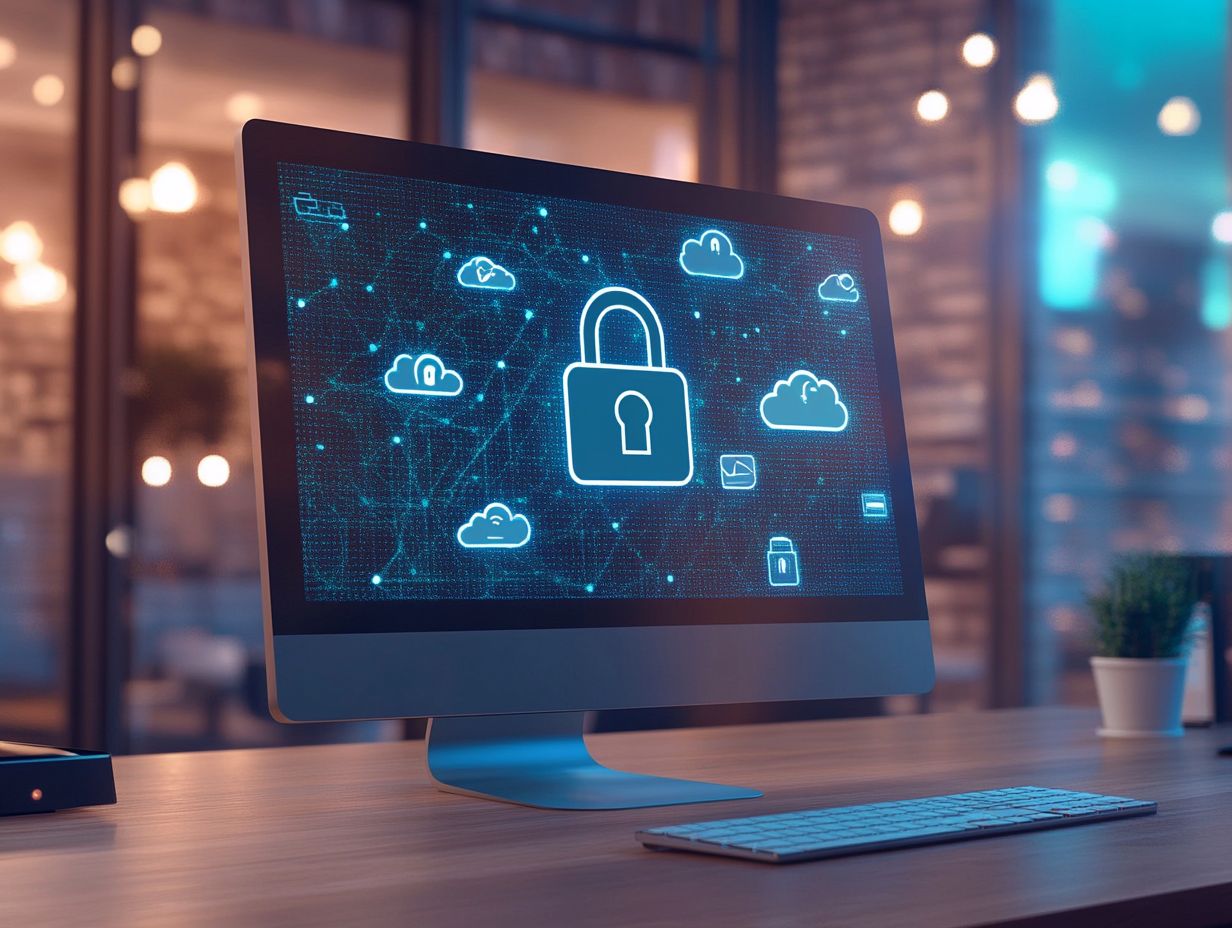
As a SaaS user, you can take proactive steps to protect your data. Understand user consent by checking the terms of service.
Implement strong identity management practices. Use multi-factor authentication to add security.
Review access permissions regularly to reduce data breach risks. Encourage security training to raise awareness of potential threats.
The Future of Data Privacy in SaaS
The future of data privacy in SaaS is transforming rapidly. New technologies and compliance measures are rising to meet digital age demands.
As cloud computing grows, advanced solutions for data privacy become vital. Expect AI-driven security systems and better encryption methods.
Emerging Technologies and Trends
Emerging technologies like AI, machine learning, and blockchain are changing data privacy and SaaS security. These advancements enable stronger security measures.
Machine learning can analyze user behavior in real-time to spot potential breaches. Blockchain adds a decentralized layer that enhances data integrity.
Preguntas Frecuentes
Qu es SaaS y por qu es importante la privacidad de los datos en este contexto?
SaaS, o Software como Servicio, es un modelo en el que el software se aloja y se accede a trav s de internet en lugar de instalarse en computadoras individuales. La privacidad de los datos es crucial en las aplicaciones SaaS, ya que se almacena y transmite informaci n sensible a trav s de estas plataformas, lo que hace esencial proteger la privacidad del usuario y prevenir violaciones de datos.
Existen leyes o regulaciones espec ficas para la privacidad de los datos en las aplicaciones SaaS?
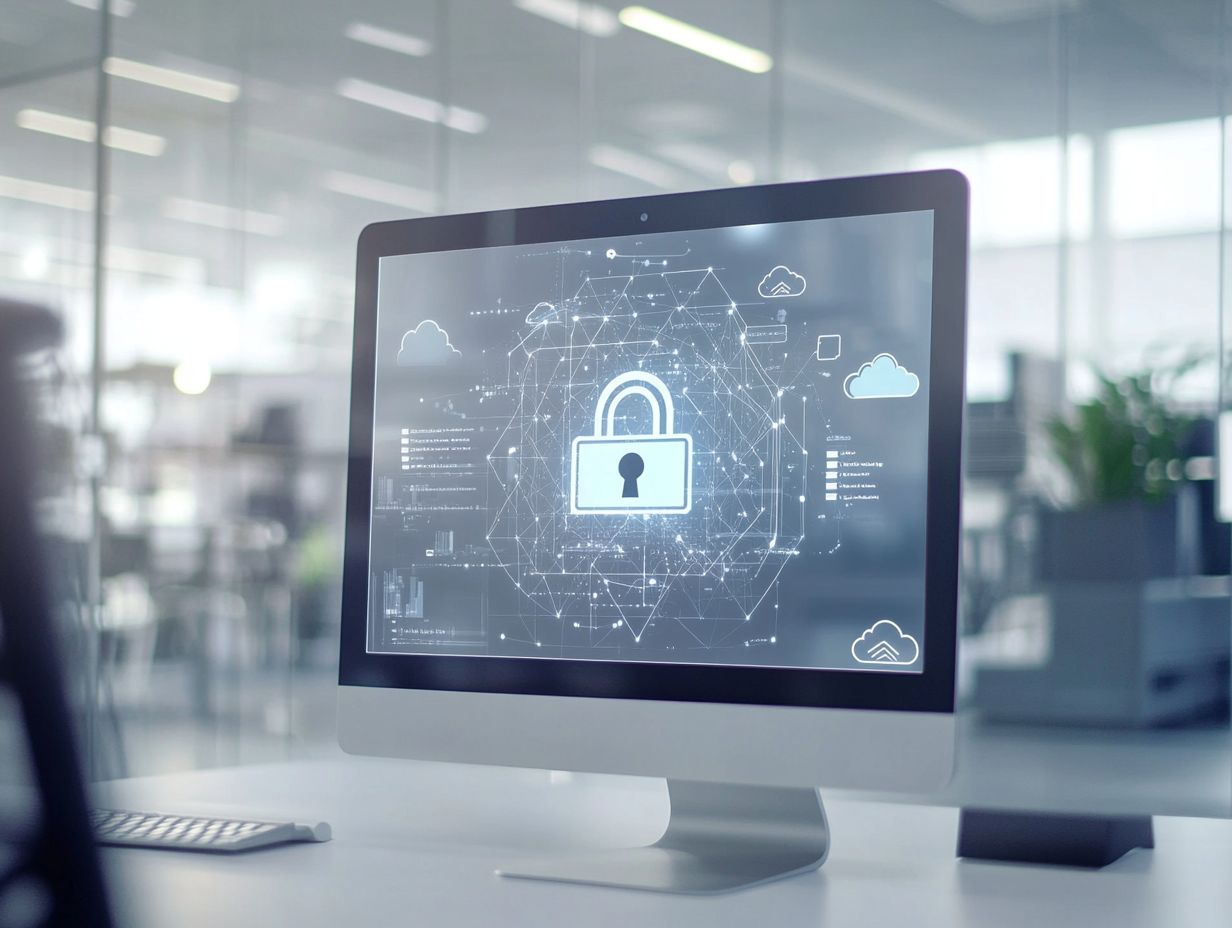
S , existen varias leyes y regulaciones que abordan espec ficamente la privacidad de los datos en las aplicaciones SaaS. Algunos ejemplos comunes incluyen el Reglamento General de Protecci n de Datos (GDPR) en Europa, la Ley de Privacidad del Consumidor de California (CCPA) en los Estados Unidos y la Ley de Protecci n de Informaci n Personal y Documentos Electr nicos (PIPEDA) en Canad .
Cu les son algunos riesgos comunes de privacidad de los datos asociados con las aplicaciones SaaS?
Algunos riesgos comunes de privacidad de los datos en las aplicaciones SaaS incluyen el acceso no autorizado a datos sensibles, violaciones de datos, medidas de seguridad de datos inadecuadas y el incumplimiento de regulaciones de privacidad de datos.
Qu medidas se pueden tomar para garantizar la privacidad de los datos en las aplicaciones SaaS?
Para garantizar la privacidad de los datos en las aplicaciones SaaS, es esencial implementar un fuerte cifrado de datos, utilizar m todos de autenticaci n seguros, actualizar regularmente el software y los protocolos de seguridad y realizar auditor as de seguridad peri dicas. Tambi n es crucial cumplir con las regulaciones de privacidad de datos y tener pol ticas claras de privacidad de datos en su lugar.
Qu papel juegan los usuarios en el mantenimiento de la privacidad de los datos en las aplicaciones SaaS?
Los usuarios juegan un papel significativo en el mantenimiento de la privacidad de los datos en las aplicaciones SaaS. Es esencial seguir las mejores pr cticas, como usar contrase as fuertes y nicas, evitar compartir credenciales de inicio de sesi n y ser cauteloso al otorgar permisos a aplicaciones de terceros. Tambi n es crucial que los usuarios sean conscientes de sus derechos y responsabilidades con respecto a sus datos personales.
C mo pueden las empresas garantizar el cumplimiento de las regulaciones de privacidad de datos en las aplicaciones SaaS?
Las empresas pueden garantizar el cumplimiento de las regulaciones de privacidad de datos en las aplicaciones SaaS manteni ndose actualizadas sobre las leyes y regulaciones relevantes, implementando pol ticas y procedimientos s lidos de privacidad de datos, y realizando capacitaci n regular sobre privacidad de datos para los empleados. Tambi n es crucial que las empresas realicen auditor as y evaluaciones regulares para garantizar el cumplimiento y abordar cualquier problema potencial de privacidad de datos.


